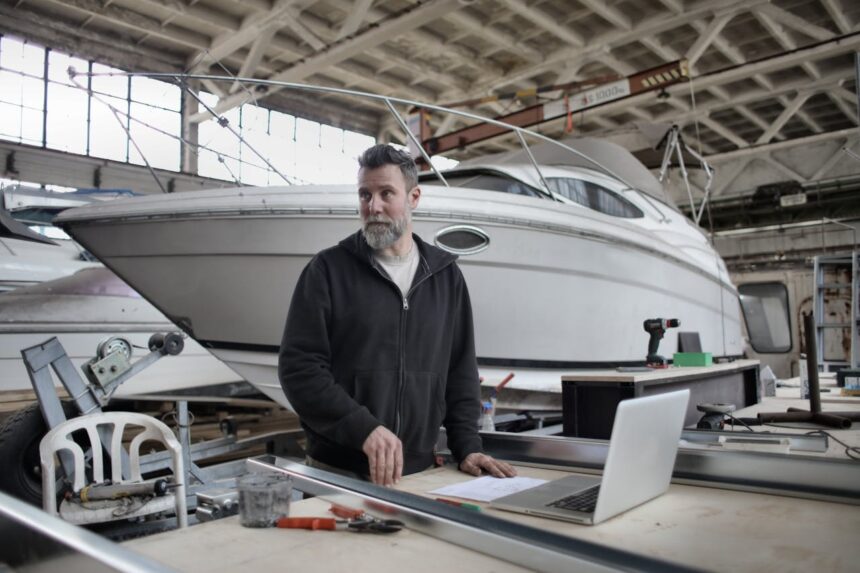Boating is a beloved pastime for many, offering a blend of adventure, relaxation, and a connection to nature. However, boats, like any other complex machinery, require regular maintenance and occasional repairs to ensure safety and performance. Understanding the basics of boat repair is crucial for any boat owner, whether you’re handling minor issues yourself or knowing what to expect when hiring professionals. Kappler’s Marine Detailing and Repair
– a professional boat repair and detailing service located in
Charleston, SC. The website is in English and targets boat owners in Charleston and surrounding counties.
Common Boat Repairs
The hull is the backbone of the boat, and damage here can be critical. Common issues include cracks, blistering, and punctures, often caused by collisions, grounding, or general wear and tear. Fiberglass boats are particularly susceptible to gelcoat damage, which can lead to deeper structural issues if not addressed promptly. Repairing hull damage typically involves sanding down the affected area, applying epoxy or resin, and finishing with a new layer of gelcoat or paint.
Engine and Mechanical Systems
Engine problems are among the most common and potentially debilitating issues boaters face. Regular engine maintenance includes checking and replacing oil, ensuring fuel systems are clean, and inspecting belts and hoses. More serious repairs might involve addressing issues with the cooling system, electrical components, or the gearbox. Proper diagnosis is key, often requiring specialized tools and knowledge, making it advisable to consult a marine mechanic for significant engine troubles.
Electrical Systems
Boats are equipped with complex electrical systems that power everything from navigation lights to onboard electronics. Common electrical issues include corroded connections, blown fuses, and battery failures. Regular inspection of wiring, terminals, and connectors can prevent many problems. When repairs are needed, it’s essential to use marine-grade components to withstand the harsh marine environment and ensure long-lasting fixes.
Plumbing and Bilge Systems
Leaks and pump failures in a boat’s plumbing or bilge system can quickly lead to serious issues, including flooding. Regular inspection and maintenance of hoses, clamps, and bilge pumps are essential. Repairs often involve replacing worn or damaged parts and ensuring all components are properly sealed and secured to prevent water ingress.
Tools and Materials for Boat Repair
Having the right tools and materials on hand is crucial for effective boat repair. Essential tools include a basic set of wrenches, screwdrivers, pliers, and a multimeter for electrical diagnostics. Specialized tools like a moisture meter, fiberglass repair kits, and marine-grade adhesives are also invaluable. Materials such as epoxy resin, fiberglass cloth, and marine paint should be of high quality to ensure durability and longevity.
Preventive Maintenance
Preventive maintenance is the best way to avoid costly repairs and ensure the longevity of your boat. Regularly washing and waxing the hull, flushing the engine after use, and applying anti-fouling paint are all important steps. Scheduled inspections of critical systems, such as the engine, electrical systems, and plumbing, can help identify potential issues before they become serious problems. Keeping a detailed log of maintenance activities and repairs can also be helpful for tracking the condition of your boat over time.
When to Hire a Professional
While many boat repairs can be handled by a knowledgeable and handy boat owner, there are times when professional help is necessary. Complex engine repairs, major hull damage, and intricate electrical issues often require the expertise of certified marine mechanics. Professionals have the experience, tools, and knowledge to diagnose and fix problems efficiently and correctly. Hiring a professional can also be a safer option, ensuring that repairs are done to the highest standards and reducing the risk of future issues.
Cost Considerations
The cost of boat repair can vary widely depending on the nature and extent of the damage. Minor repairs, such as fixing a small gelcoat crack or replacing a bilge pump, may cost a few hundred dollars, while major engine overhauls or hull repairs can run into the thousands. It’s important to budget for regular maintenance and unexpected repairs as part of the overall cost of boat ownership. Obtaining multiple quotes and understanding the scope of work can help manage expenses and ensure fair pricing.
Environmental Considerations
Boat repairs and maintenance activities can have significant environmental impacts if not conducted responsibly. Proper disposal of hazardous materials, such as oil, batteries, and antifreeze, is crucial. Using eco-friendly products and following best practices for waste management can minimize the environmental footprint. Boaters should also be mindful of preventing oil spills and contamination of waterways during maintenance activities.
Final Words
Boat repair is an essential aspect of boat ownership that ensures safety, performance, and longevity. Whether tackling minor repairs yourself or hiring professionals for more complex issues, understanding the basics of boat repair can save time and money. Regular preventive maintenance and responsible environmental practices are key to enjoying a trouble-free boating experience. By staying proactive and informed, boat owners can keep their vessels in top condition and fully enjoy the pleasures of boating.



